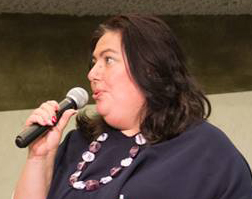Knit Some Warmth is a campaign that warms the heart up, because someone has dedicated time and effort to help a stranger. For a homeless man this could be a blessing he will remember for life.
Two thousand and fifty homeless now feel a bit warmer wrapped in woolen scarves, and wearing hats, gloves and socks knitted by volunteers from across the country. The effort is run by a foundation which for a fourth winter in a row has successfully given a little bit of warmth to the homeless.
Ima Nachin (There is a Way) is an NGO with a mission to support Bulgaria's homeless. And given that they are people with their fates, the foundation works to take them out of anonymity. In the campaign Support a Homeless Person the foundation will tell moving stories about homeless people so that they could find understanding and help. One of those stories is about a man struck by disability.
 “He has been homeless for several years after his leg went numb and he can no longer work”, the Chairperson of the Foundation Margarita Sokolova explains. “His relatives are poor and could not take care of him. It is a moving story, as in his previous experience he had a job, a family and a child and even today, he is determined to try to work again. He wants to join a computer course to be more competitive on the labor market.”
“He has been homeless for several years after his leg went numb and he can no longer work”, the Chairperson of the Foundation Margarita Sokolova explains. “His relatives are poor and could not take care of him. It is a moving story, as in his previous experience he had a job, a family and a child and even today, he is determined to try to work again. He wants to join a computer course to be more competitive on the labor market.”
Unfortunately, many people end up homeless and no one is fully protected from such a disastrous scenario.
“The largest group of the homeless consists of children who turn 18 and end up in the street without any professional skills, a home and support from family or friends”, Margarita Sokolova says. “There is another group - people who have lost real property as a result of fraud, or ones who are in financial dire straits and cannot pay back their bank loans. There are many homeless elderly abandoned by their families, as well as mentally handicapped individuals. Well, there is a small group of people who accept this way of life as perfectly normal.”
 No one knows how many homeless live in Bulgaria. Crisis centers in Sofia offer not more than 200 beds. Most of the homeless actually remain in the streets because the state has provided to them neither shelter nor any chance of employment.
No one knows how many homeless live in Bulgaria. Crisis centers in Sofia offer not more than 200 beds. Most of the homeless actually remain in the streets because the state has provided to them neither shelter nor any chance of employment.
“It is important to work consistently with these people. They should not feel isolated and they need help to be able to deal with their psychological issues and to regain self-confidence. They have to become aware of their potential and be motivated to change their lives. This is a hard job because most of them feel absolutely hopeless and lost. So at the end of this month we launch therapy sessions and psychological rehabilitation at crisis centers. Later we shall start raising money for building a social enterprise that could provide employment to the homeless. For a start we shall have a pilot group of 15 to 20 people.”
Homelessness prevention is of vital importance, Margarita Sokolova believes. And she points to measures including the creation of protective clauses in taking bank loans, providing preferences for employment of orphans and building more old people's homes.
“Our priority is to turn around the way society views the homeless. Most people think they have addictions - to alcohol, drugs, or that they do not have the desire and guts to work and fight. Fortunately, most Bulgarians show compassion to them and are aware that anybody might end up homeless. So, they are ready to dedicate some of their time and resources to help”, concludes Margarita Sokolova.
English Daniela Konstantinova
Photos: archive of the foundation
Who said Bulgarians were grumpy pessimists? Take a stroll through Sofia's Christmas bazaars and meet the cheerful crowd. The festive decorations, music, merry-go-rounds and stalls overflowing with treats and handmade souvenirs can make the gloomiest..
Bulgarian studies are highly valued at the Bogdan Khmelnitsky State Pedagogical University in the Ukrainian city of Melitopol. So it comes as no surprise that the university is hosting the latest edition of the International Bulgarian Studies Readings,..
"You say you are Bulgarian, but you do not know Bulgarian" – this reproach from officials in Bulgaria has been faced by quite a few by our compatriots from the historical Bulgarian communities around the world. One of them is Bledar Alterziu from..

+359 2 9336 661
